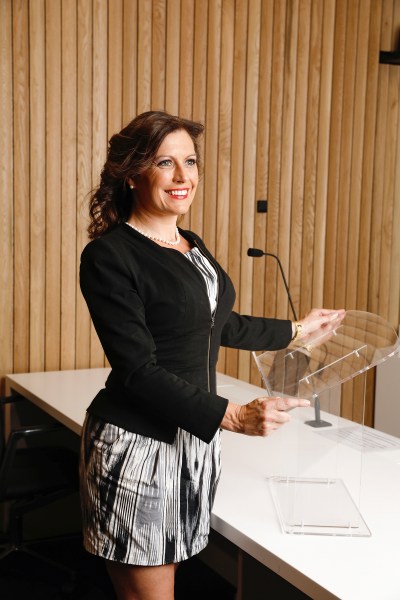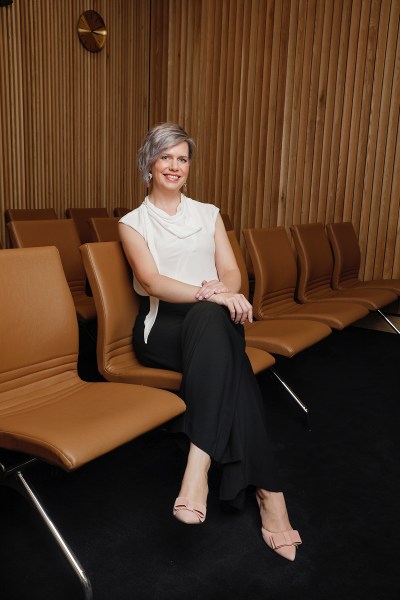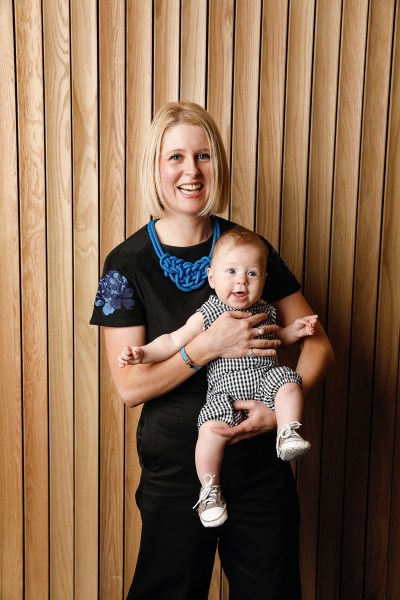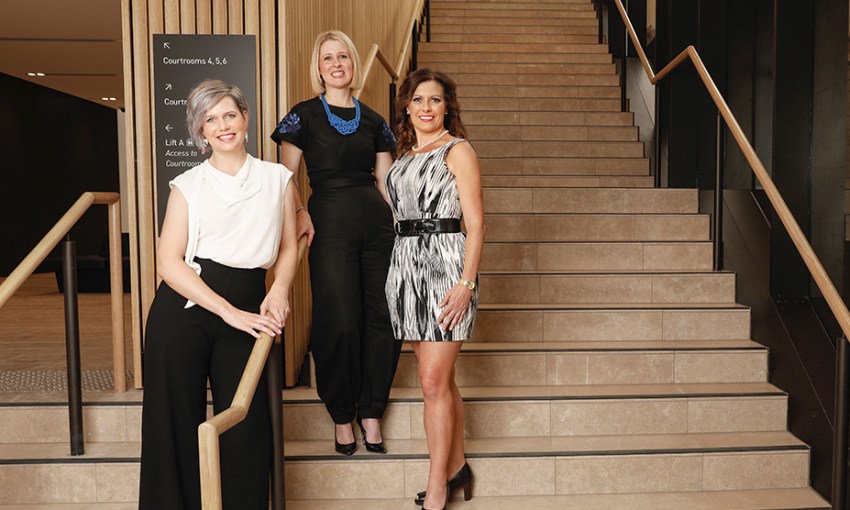South Australian women in the higher tiers of the legal profession still face gender inequality, however some are raising the bar for others to follow.
Making their case

When she first went to the bar in 2008, Dr Rachael Gray wasn’t sure where her work was going to come from. Her grandfather’s words to her have been her mantra: “Don’t worry Rachael, the work will always gravitate to those that can do it”.
Appointed a Queen’s Counsel last year, at 48, Rachael is now one of only six female silks at the independent bar in the state, making her a rare breed.
More than half of South Australia’s lawyers are women, but only three per cent of them choose to be barristers — those lawyers who specialise in conducting cases in court. The result is that there are currently around three times as many male barristers. Such statistics have an effect down the line; without women in the senior ranks, there are fewer available to become judges in the future. A gender-balanced judiciary is surely desirable for a balanced administration of justice, so how do we make that happen?
In 2015, Chief Justice Chris Kourakis of the Supreme Court was concerned enough about the statistics to establish a program called Step Up to the Bar, which creates a judge’s associate role offered only to female practitioners to help them gain experience to become a barrister. It is still a bit early to tell what difference this may have made, but out of the two women who held the position, one went to the bar but later returned to practising as a solicitor.
In 2018, the Law Council of Australia introduced an equitable briefing policy encouraging law firms to give consideration to both female and male barristers when briefing out cases, but men are still getting the bulk of the briefs.
Rachael and several of her colleagues are changing attitudes, but not without a good dose of self-belief and the encouragement of mentors in their corner. Rachael confesses she still has a little voice of insecurity in her head.
“Every time you stand up, you think today’s the day I’ll be exposed as an impostor. The impostor syndrome; it’s a thing! But it’s not a bad thing, it drives you,” she says.
When clients need to be convinced you will handle their case well, or you’re told how many doubts your client had about you before you won their case, that little voice can be loud. But Rachael’s approach is simple.
“I think if people see your work it will change their minds. You just have to be out there doing it,” she says.
When it comes to talking work/life balance, Rachael is, without apology, politically incorrect. A single mother of three children, without a nanny in sight, she doesn’t do work/life balance — at least not publicly. She doesn’t like to leave a meeting saying she has to go and pick up the children; she just does it. In Rachael’s view, it is naive to think you can talk about the demands on your time outside of work if you want to get on. She hopes for change but for that to happen, Rachael says women must stay in the workforce, and full time. She is supportive of those who choose to be stay-at-home mums but, if they do, Rachael says they won’t be the ones to effect that change.
Personally, Rachael knows that in some quarters she is judged as selfish by often having to prioritise time to her work over her children.

“But am I really selfish? There’s no doubt this is what I want to do, this is what drives me but I also want to achieve change for women so I like to think that’s not completely selfish,” she says.
When Holly Stanley, now 35, lost a client’s case in the Full Court earlier in her career because of something she had failed to present in court, she thought everybody would assume she was out of her depth. Despite this early setback, she pressed on with her plan of one day being a barrister and applied for her dream job of Crown Counsel — a lawyer that conducts cases in court for the government.
Holly recalls being told she had the job. The thrilling moment was shortly followed by her future boss telling her he knew about her Full Court mistake.
“But,” says Holly, “he went on to tell me that the fact I applied for the job after that defeat proved to him that I was of the calibre to be counsel, because everyone faces obstacles. If you’re not willing to lose and be embarrassed then don’t become a barrister, because you will lose and you will be embarrassed.”
When that job finished, Holly decided to go to the bar. It was a decision not made without some anxiety, with two young boys, then aged four and two, and a husband running his own business.
“Two of the questions people asked me when they found out I was going to the bar were ‘what does your husband think?’ and ‘what are you doing with the children?’ As if I was just going to leave them by the roadside,” says Holly.
As it turned out, the anticipation of the move was much worse than the reality. Once she got to the bar, Holly was buoyed by support from both male and female colleagues who made sure that if she was ever not busy, they would refer work to her. That combined with doing pro bono (work for no fee) and getting repeat business gave her the start she needed.
Homelife has become a bit harder. Holly is now managing as a single parent. Many of her male counterparts, particularly the older ones, have a big advantage, and that is a wife who doesn’t work.
But there is change in the air. Now and then a male barrister will ask openly in court for an earlier adjournment time so they can attend to family responsibilities and that makes it easier for Holly and others to feel comfortable about doing the same.
“I think part of the problem has been that, for some women, they feel that the only way to get ahead is to play the man’s game,” says Holly.
“That might work for them, but I want to be an openly feminine barrister who has two small children and all of the trappings that come with that. I think we have to be a bit braver in putting that out there.”

Anna Wells, 37, settles her five-month-old son, Darcy on her lap as she contemplates returning from maternity leave to her practice as a barrister, which she began three years ago. She is back at chambers full time this year and her lawyer husband will take over the care of Darcy for the next six months.
Although Anna has always felt a groundswell of support from her colleagues in chambers it has not always been that way when taking her place at the bar table. Small slights and gestures are reminders that, as a female barrister, you are still an anomaly.
“A lot of women could report this,” says Anna. “You sort of feel dismissed and, where there might be a lot of male barristers at the bar table, ignored,” she says.
She lets her work do the talking and generally finds she is included after that.
Although the bar offers flexibility between court appearances, once you’re in court there is none. Anna thinks that might turn some women off.
“Once you’re in a trial it is all-consuming,” explains Anna. “It’s a bit like having a baby. It takes up all of your headspace, all your emotional space and every bit of energy you’ve got.”
Although the commitment and intellectual challenge is what draws people to the job, if you have to juggle all of those things and factor in your partner’s work, that’s a lot to handle.
But, as Anna says, you don’t have to follow what some consider the standard model of the barrister working themselves into the ground. You can shape your practice as you want it to be depending on your circumstances.
It’s easy to dwell on the negative aspects when there aren’t many others to tell you about the positives. Anna’s advice to other women is to give the bar a go.
“This big, life-changing, difficult obstacle, which I certainly saw for years before I did it, held me back,” says Anna.
Her only regret is that she didn’t do it sooner.
This story first appeared in the March 2020 issue of SALIFE magazine.
including free delivery to your door.



